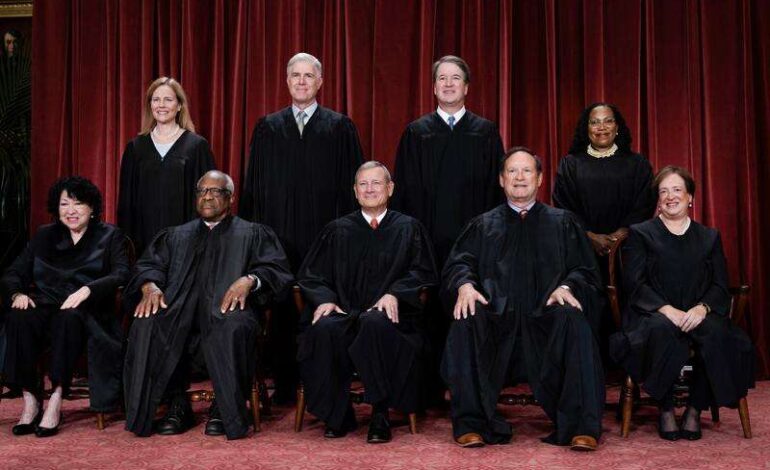Supreme Court’s New Term Faces Urgent Tests of Trump’s Power

UPDATE: A critical new term for the Supreme Court begins today, with justices poised to tackle significant challenges to presidential power and pivotal issues surrounding voting rights and LGBTQ+ protections. This term could shape the legal landscape for years, and the court’s conservative majority has already shown a willingness to support Donald Trump‘s assertive claims of authority.
Liberal Justice Ketanji Brown Jackson highlighted the stakes, likening recent rulings to the unpredictable nature of the comic strip “Calvin and Hobbes.” She stated, “We seem to have two rules: that one, and this administration always wins.” This term is expected to be one of the most polarizing yet, according to Irv Gornstein, executive director of the Supreme Court Institute at Georgetown University.
Three major cases concerning Trump’s expansive claims of executive power are set for consideration. The first, scheduled for early November, will examine the legality of Trump’s sweeping tariffs, which lower courts argue exceed his authority under emergency powers. States and small businesses are challenging the imposition of these tariffs, arguing that taxing powers lie solely with Congress.
In December, justices will delve into Trump’s ability to dismiss independent agency officials at will, potentially overturning a longstanding decision that requires just cause for such actions. The conservatives’ previous acceptance of firings, despite lower-court rulings deeming them illegal, hints at a likely overturn of precedent.
Additionally, the court is expected to address Trump’s controversial executive order that denies birthright citizenship to children born in the U.S. to undocumented parents. This case could be argued in late winter or early spring, challenging over a century of legal understanding.
The court’s decisions could also influence voting rights. A critical case on congressional redistricting in Louisiana is set for mid-October, where the state seeks to discard race considerations in political map drawing. This move could drastically alter the Voting Rights Act, impacting districts predominantly represented by Black, Hispanic, or Native American voters.
Moreover, significant changes could arise in campaign finance regulations as the justices review a longstanding federal provision. The court’s history suggests a pattern of striking down campaign finance laws, creating an environment ripe for increased political spending.
Transgender rights will also face scrutiny, as the court hears cases from Idaho and West Virginia addressing bans on transgender women and girls in sports. While the justices upheld a ban on gender-affirming care for minors, they left broader questions about transgender rights unresolved.
In a separate note, speculation surrounds Justice Samuel Alito, who turns 76 in April 2024. His potential retirement next summer could allow Trump to appoint a younger, conservative replacement, significantly impacting the court’s future direction.
As the Supreme Court embarks on this critical term, the implications of its rulings will resonate across the nation, affecting millions and potentially reshaping the legal landscape. Stay tuned for updates as these pivotal cases unfold.






